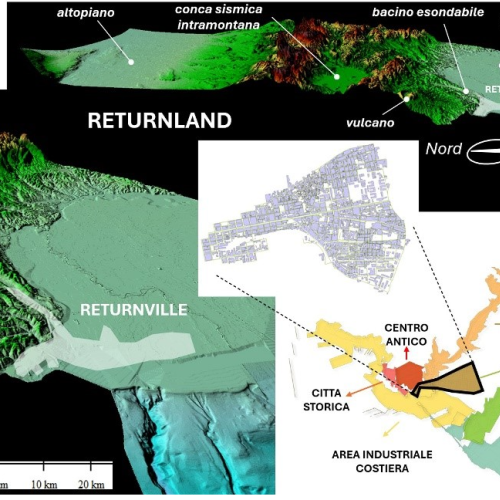This article was originally published by the Joint Research Centre (JRC).
Coordinated by the University of Naples "Federico II," RETURN is an extended public-private partnership involving 18 universities, research centres, technical-scientific institutions, six private companies, and Italy’s national Civil Protection Department.
The project seeks to enhance Italy's capacity to understand and manage environmental, natural, and anthropogenic risks. By connecting national research efforts with European and global strategic networks, RETURN contributes significantly to disaster risk governance through the active participation of public authorities, stakeholders, and industry partners.
Objectives and Methodology
RETURN addresses a broad range of hazards—including flooding, coastal floods, droughts, ground instability, earthquakes, volcanic activity, and environmental degradation—with a particular emphasis on urban areas, critical infrastructure, and community resilience. Special focus is placed on climate change and the underlying science needed for effective climate services supporting risk mitigation and adaptation.
With funding of approximately €115 million, RETURN aims to:
- Enhance understanding of environmental, natural, and anthropogenic risks, especially their interactions with climate change.
- Improve predictive capabilities and methodologies for prevention, adaptation, and mitigation.
- Develop advanced monitoring techniques and methodologies.
- Foster efficient and sustainable use of data, products, and services.
RETURN utilises state-of-the-art techniques and technologies, including digital twins, artificial intelligence, testbeds, proofs of concept (PoCs), and advanced forecasting models to tackle complex, multi-hazard scenarios under changing climate conditions.
Key Scientific Outputs
Among RETURN’s notable outputs is a Digital Ecosystem—a unified platform integrating operational tools and PoCs, designed for simulating and analysing climate and hydrological risks.
Central to the project are two innovative digital environments:
- RETURNLAND, a territorial-scale digital elevation model.
- RETURNVILLE, a detailed digital urban model.
These platforms enable the comprehensive simulation of multi-risk scenarios grounded in both physical and socio-economic realities. Additionally, RETURN’s research includes developing PoCs and realistic, impact-driven risk scenarios applied to various Italian case studies. These focus particularly on critical infrastructures like transportation networks, energy distribution, and hydraulic systems, addressing complex interactions, cascading hazards, and interdependencies.
Educational Initiatives
RETURN places significant emphasis on education and professional training through the RETURN Academy. This includes advanced training courses aimed at young postgraduate scientists from STEM fields and the humanities, generating widespread interest and participation. Information on forthcoming courses is regularly updated in the project's news section.
Future Prospects
The RETURN project, active from 2022 to 2025, is overseen by Italy’s Ministry of University and Research, targeting solutions with low to intermediate Technology Readiness Levels (TRL). Efforts are already underway to establish collaborations with complementary NextGenEU-funded projects, enhancing the applicability and real-world integration of RETURN’s scientific outcomes.
Background Information
RETURN originated from a call designed to foster collaboration and technological transfer among universities, research centres, private sector companies, and public administrations. Beyond the core partnership, cascading calls have significantly expanded the project, bringing the total engagement to over 1,000 scientists nationwide.
For more information, visit: fondazionereturn.it/en
